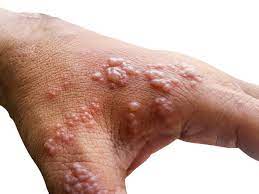Monkey pox is a viral disease that is a growing health concern in Ghana. While the disease is rare in Ghana, there have been recent outbreaks, including one in 2021. Here are some reasons why monkeypox is a growing health concern in Ghana:
- Limited public awareness: Many Ghanaians are not aware of monkeypox, its symptoms, or how it is transmitted. This lack of public awareness can make it difficult to identify and control outbreaks of the disease.
- High-risk behaviors: Some high-risk behaviors, such as hunting or consuming bushmeat, can increase the risk of exposure to infected animals and, therefore, increase the risk of contracting monkeypox.
- Poor healthcare infrastructure: The healthcare infrastructure in some parts of Ghana may not be well-equipped to handle outbreaks of monkeypox. This can lead to delayed diagnosis, inadequate treatment, and the spread of the disease.
- Climate change: Climate change may be contributing to the spread of monkeypox by altering the distribution of the animals that carry the virus. As habitats change and animals migrate, there is a greater risk of exposure to new populations.
- Limited surveillance: There is limited surveillance for monkeypox in Ghana, which can make it difficult to detect outbreaks and track the spread of the disease. Improving surveillance can help identify outbreaks earlier and prevent the spread of the disease.
To address the growing health concern of monkeypox in Ghana, it is important to increase public awareness of the disease, promote safe behaviors around animals, improve healthcare infrastructure, address climate change, and strengthen surveillance and response systems. By taking these steps, Ghana can better prepare for and respond to outbreaks of monkeypox, ultimately protecting the health of its citizens.































